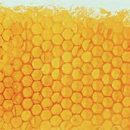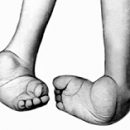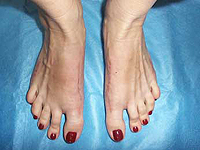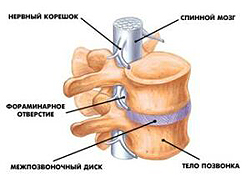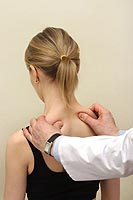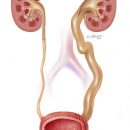What are the reasons for the deformation of the foot in children? How to treat closures? Answers to these questions you will find in the article.
Content
Stop deformations and their causes
Congenital deformations of the feet in children are one
Of the most common defects for the development of musculoskeletal
Apparatus. In recent years, doctors have noted an increase in the number of children with
By this diagnosis.About the reasons for the development of closures, about its modern
Treatment methods tells the head of traumatology and
Orthopedics RDKB Alexander Sergeevich Kuzin.
The reasons for the development of closures remain so far
Not sufficiently studied. Most often three hypotheses are discussed. Most
The old theory of the emergence of this pathology is mechanical. Her
Supporters who consider the cause of the deformation of the foot mechanical
Impact on the fetus during the period of intrauterine development. Others are associated
Its with a violation of the bookmark and the delay in the formation of the foot and the legs in
intrauterine period. Third who are most - with vice
The development of the nervous system. However, numerous studies of the latter
years have shown that there is a displacer in congenital closure
The process of the whole organism with a predominant defeat of the foot and lower leg,
where depending on the severity of the deformation prevails in varying degrees
underdevelopment of bone, muscular and neuro-vascular systems.
The formation of closures can also contribute to the fetal
Environmental situation: electromagnetic fields, radioactive
radiation, chemical exposure and t.NS.
Yes the same flu.
Viral infections in different times of pregnancy can leave after
Very serious consequences. The future mothers should be remembered about it. IN
The first trimester of pregnancy when the skeleton laying occurs,
Woman with permission of the obstetrician-gynecologist need to take
Calcium-phosphoric drugs. Lack of vitamins in the nutrition of a pregnant
can also negatively affect normal development
fruit.
In addition, one of the reasons for the formation of congenital
closures may be heredity. However, strictly say,
that this disease is transmitted by inheritance, it is impossible.
Confection refers to the degree of development, which are visible immediately after the birth of the child. I would ideally, if the kid back in the maternity hospital examined an experienced orthopedist.
After all, the treatment of closures should be started as early as possible, almost with
10-12 days of life crumbs. As a rule, this pathology is revealed already
In the first month: it is so striking that parents themselves
see that something is wrong with the leg. Especially, it is noticeable if a child has
One-sided closer.
Stop looks inside, she turned
the inner edge up and as if stretched forward (element of horse
feet). With multi-glossy deformation of the foot heel tightened up,
The stop is aroded and deployed to the inner edge up. Her
it is possible to outline.
Similar deformation can
be both different neurological diseases - but in these cases
Stop more or less displayed in the correct position.
Treatment of closure
The main method of treatment of congenital closures in our country remains
conservative. Most orthopeds are recognized that it is from him
Started. It consists in the stage of drying. At the beginning of the doctor
works with a foot, warm up it, trying to bring it in more correct
position without use. If a little bit «improve»
position of the foot, this position is fixed with a gypsum booze,
which is superimposed from the foot and above the knee. Over time
Boots removed and again work with a foot: specialist
It seeks its more correct position, compared with the previous
at once and again imposes a gypsum bandage. And so in several stages. IN
Most cases, by the end of the first year of the child's life
lead a foot.
After removing the gypsum, I must wear
rigid orthopedic shoes. Otherwise during active
child growth, stop deformation can resume.
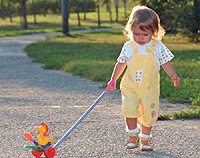
In different
Clinics relate differently to the timing of the application of operational
interventions. Some doctors are firmly on purely conservative
positions and ready to dry children almost until 14-15 years. As a result, everything
Childhood child spends in plaster.
Operate,
Starting from 1 year, if conservative treatment is
ineffective. In the case when the kid has a heavy form of foot deformation,
We can consist in 6 months, because, as a rule, heavy
closure forms do not succumb «manual» Elimination.
Abroad
Applied and early operational treatment. Children operate aged
3-6 months, in order to take the child to
legs, start walking, he already had a normal foot.
In Russia more often
Total resort to tendon plastic on a hooker. Operated
Leg (or legs) is fixed in the gypsum bandages above the knee on 3
month. Then this bandage is removed and a short blitz course is held
Rehabilitation. Then the gypsum shoe is again superimposed
knee, for another 3 months. After removing the gypsum, rehabilitation courses are held.
There are other methods for correcting the position of the foot. For example, S
using the orizarov apparatus. But not any deformation can be
Eliminated when his help. So, for example, a strongly deformed stop
He does not give in.
Qualified operation performed almost
always gives a tangible positive result. However, consider
operation as a complete cure is also impossible. It's just a stage of treatment,
without which it does not happen.
After operational
interventions It is important to clearly comply with the recommendations of the attending physician, otherwise
Stop can deform again. Then there is nothing more conservative
Cannot do. We will have to re-operate. And repeated
The operation is more complicated technically and gives less favorable results.
Therefore, parents must remember that supporting therapy should be
constant during the whole age growth period. Nothing is
you can do it, but after the operation, the crumbs remain some cosmetic
Defects: scars and, more noticeable, the operated leg will be
Always thinner.
Often children with congenital closets are assigned «rank» Disabled childhood.

